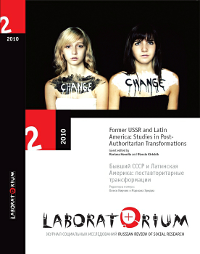Сельская модернизация, земельные конфликты и мобилизация крестьян в России и Аргентине
##plugins.themes.bootstrap3.article.main##
Аннотация
The current neoliberal agrarian policies in the former Soviet Union and Latin America have been strongly influenced by the Western agribusiness model of the agrarian economy. Following periods of state-led agrarian development, the rural sector in these countries is now characterized by free prices and relatively free import and export policies. In both Russia and Argentina, actors (governments, agribusinesses, or academics) in search of international models or partners predominantly looked to the highly productive agriculture in the West. Yet the rural economies of both countries in many ways are more similar to each other than to the West in terms of geography, insecure property rights, weak institutions, and a heterogeneous structure. Differences concern the role of the state (larger in Russia) and the degree of urbanization (higher in Argentina). The process of land accumulation and increasing influence by agribusinesses has led to low levels of collective protest in Russia compared to Argentina, which is a result of the duration of the process, the specific demographic context, and the socio-economic legacy, including informal property relations. In English, extensive summary in Russian.
Ключевые слова
Abstract 71 | PDF Full Paper (English) Downloads 38 PDF Extended Summary Downloads 31 HTML Full Paper (English) Downloads 3 HTML Extended Summary Downloads 1

